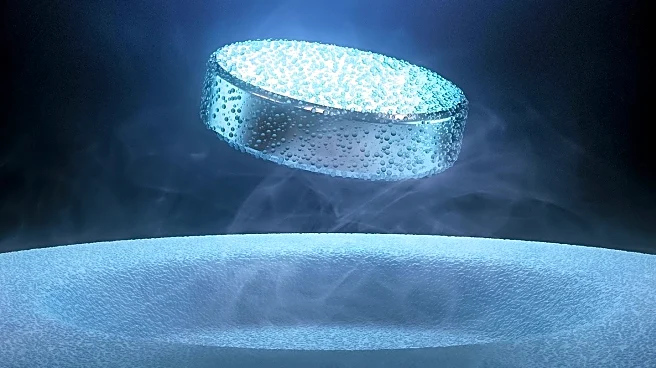What's Happening?
Researchers at Tel Aviv University have developed a lab-grown human spinal cord, marking a significant advancement in regenerative medicine. Led by Prof. Tal Dvir, the team has successfully engineered spinal cord tissue that could potentially enable paralyzed individuals to regain mobility. The upcoming human trial, approved by Israel's Health Ministry, will test the transplant's effectiveness in restoring function to patients with spinal cord injuries. This breakthrough follows successful animal trials where over 80% of subjects regained the ability to walk.
Why It's Important?
Spinal cord injuries are a major medical challenge, often resulting in permanent paralysis due to the body's inability to naturally regenerate damaged nerve cells. The development of lab-grown spinal cord tissue offers hope for millions affected by such injuries, potentially revolutionizing treatment options and improving quality of life. Successful human trials could pave the way for widespread application of this technology, reducing healthcare costs and enhancing recovery prospects for patients worldwide.
What's Next?
The first human trial is set to begin with an Israeli patient, focusing on injuries less than a year old. If successful, the technology could be expanded to treat more severe cases and older injuries. The research team plans to refine criteria for patient selection and further develop the technology to assist all individuals with paralysis. This advancement could lead to new standards in regenerative medicine and spinal cord injury treatment.











